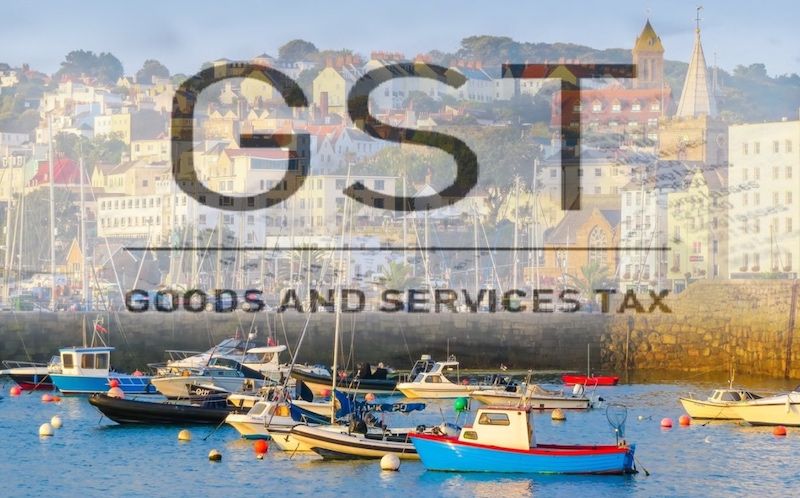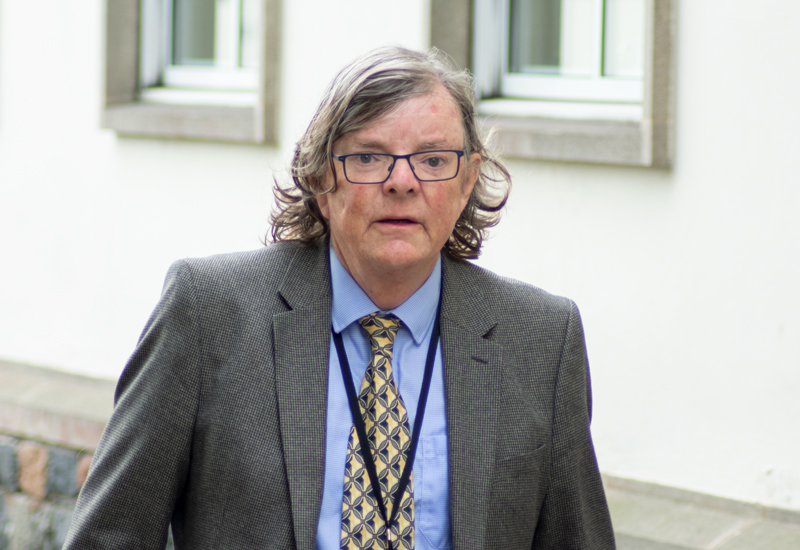


Politicians and officials behind proposals for wide-ranging tax reforms broadcast live to the Bailiwick last night and explained why they will go to the States this summer and ask deputies to support the largest personal tax increases in decades.
At the centre of their proposals is a new goods and services tax (GST), probably at a rate of 5% or 8%, to plug most of an emerging annual deficit of £85million in States’ finances as a result of demographic changes decades in the making.
They also want to increase personal tax allowances and reform social security contributions to reduce the burden on the poorest 25% of households and increase revenue from the rest of the population.
The panel presenting the proposals at last night’s briefing was led by Deputy Mark Helyar, the Policy & Resources Committee’s treasury lead, and also included Deputy Peter Roffey, the President of the Committee for Employment & Social Security, Mark Thompson, a non-voting member of the Committee for Employment & Social Security, and Bethan Haines, States’ Treasurer.
They introduced a series of slides outlining the latest tax proposals and the reasons for them.
“The roots of our challenges go back to the 1940s and reflect the way our society has evolved over time,” said Ms Haines.
Pictured: The first slide presented at the briefing illustrated changes to the Bailiwick's population profile over several decades.
“People used to have much bigger families. Families with five or more children were much more common in the 1950s and 60s than they are today. From about the 1970s, the number of children born to each woman started to fall and has been falling gradually ever since.
“What this means is that over the course of generations the shape of our population has changed – and it’s not done yet.”
Ms Haines said that public finances in the Bailiwick were unusually dependent on taxes and contributions directly related to income from employment.
“Almost two-thirds of the income the government receives is in the form of income tax and social security contributions. This means we are very dependent on the amount people in the community earn – much more so than other jurisdictions.
Pictured: Bethan Haines explained the various sources of States' income.
“Because most households’ income is highest while they are working, this means we are also particularly reliant on our working population. We could increase these taxes for everyone or by having a higher rate for higher earners…however, that just focuses more of our revenues on those people who are already paying the most and are reducing in number.
“Increasing income tax could also be damaging to our island’s attractiveness and needs to be approached with care.”
The Policy & Resources Committee has suggested increasing income tax as a less preferable fall-back option if there is insufficient support to introduce GST.
Some deputies want the Committee to focus on other forms of taxation, such as on company profits or property ownership.

Pictured: Deputy Charles Parkinson wants the Policy & Resources Committee to do more work on the potential to reform taxes on company profits before proposing substantial increases in taxation on individuals and families.
Ms Haines said there were substantial challenges trying to make other forms of tax plug an annual deficit of the size projected.
“Despite the 0% headline rate, corporate income tax makes up 10% of the revenue we raise, which is actually a similar proportion to the international average," she said.
“As the finance sector provides most jobs for our islanders, our whole economy is very sensitive to our corporate tax rules. We need to balance complying with international tax standards with remaining competitive and keeping jobs on the island.
“We are looking at corporate income tax and think it could raise around £10million. We are working with other jurisdictions on how these are applied but it’s not going to be enough on its own to fil the gap.
“Our other taxes, like fuel and excise duty, TRP [property tax] and document duty, only contribute about 10% of our revenue. They might make a small contribution to the solution, but they would need to be increased far further than would be fair or practical to be a solution in themselves.
“This leaves us with a goods and services tax, which has the potential to raise a sizable amount. Guernsey is almost unique in not having a goods and services tax. Most countries consider these a fundamental cornerstone of their tax system.”
Pictured: Mark Thompson explained the contribution to public revenue made by taxes on goods and services or consumption in other jurisdictions.
Deputy Peter Roffey said that he dropped his longstanding opposition to GST when he saw that it could form part of a package of tax reforms which could raise more revenue for public services while reducing the tax burden on the poorest households.
“A standalone GST would be regressive. It would hit the poorest the hardest. And, just like my colleagues, I could certainly not support that,” said Deputy Roffey.
“But it is important to remember that what we are building here is a package which may include GST but will also include measures specifically tailored to help lower income households.
“These will include reshaping the social security system so that lower- and middle-income earners – both employed and self-employed – would pay less in contributions.
Pictured: Deputy Peter Roffey said the tax package being developed could reduce the tax burden on the least well off 25% of households.
“Also, increasing personal tax allowances so that people would be able to earn more before they started to pay tax, adjusting pensions and other benefits for the expected impact on inflation and finally an annual grants scheme which would help low-income households that we don’t think we can reach with any of the measures that I’ve just set out.
“If we combine all of these factors, then it is possible to design a system which includes GST but in which many lower income households would not only not be worse off but be better off than they are today.
“Achieving that has been my absolute red line for supporting these proposals. And I’m glad that the Policy & Resources Committee agrees on this point.”
More Express coverage of last night's tax briefing:
"Essential services at risk" if States don't raise more tax
Deputy Helyar rejects calls for P&R to resign if defeated on GST
Comments
Comments on this story express the views of the commentator only, not Bailiwick Publishing. We are unable to guarantee the accuracy of any of those comments.